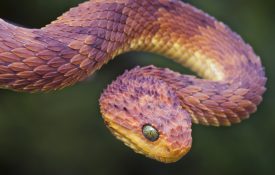-
Tots fearless when facing spiders, snakes, study suggests
MSNBC: Like the girl in that old Jim Stafford song, most people don’t like spiders and snakes. But according to new research involving infants and children, we don’t start off this way. According to Vanessa
-
When the Zebra Loses its Stripes
The capacity to remember that a zebra has stripes, or that a giraffe is a four-legged mammal, is known as semantic memory. It allows us to assign meaning to words and to recall general knowledge and concepts
-

People Aren’t Born Afraid of Spiders and Snakes: Fear Is Quickly Learned During Infancy
Studying how infants and toddlers react to scary objects can help reveal the developmental origins of common fears and phobias.
-
Need a Break? Depends on Your Concept of Willpower
Do you ever find yourself burning the candle at both ends? Friends may tell you to slow down or take a break but new findings, published in Psychological Science, challenge the long-held theory that willpower
-
Poignancy and loyalty: The ‘midnight ride’ effect
With the country on the verge of civil war, Henry Wadsworth Longfellow wrote a patriotic poem about Paul Revere, a little-known Massachusetts silversmith and minor hero of the Revolutionary War. “Paul Revere’s Ride” played fast
-
Cognitive and Brain Consequences of Learning in the Arts
Will playing Chopin to your baby in the womb help her get into Harvard? Does teaching your child to paint improve his chances of becoming a latter-day Leonardo da Vinci, capable of mastering art and

